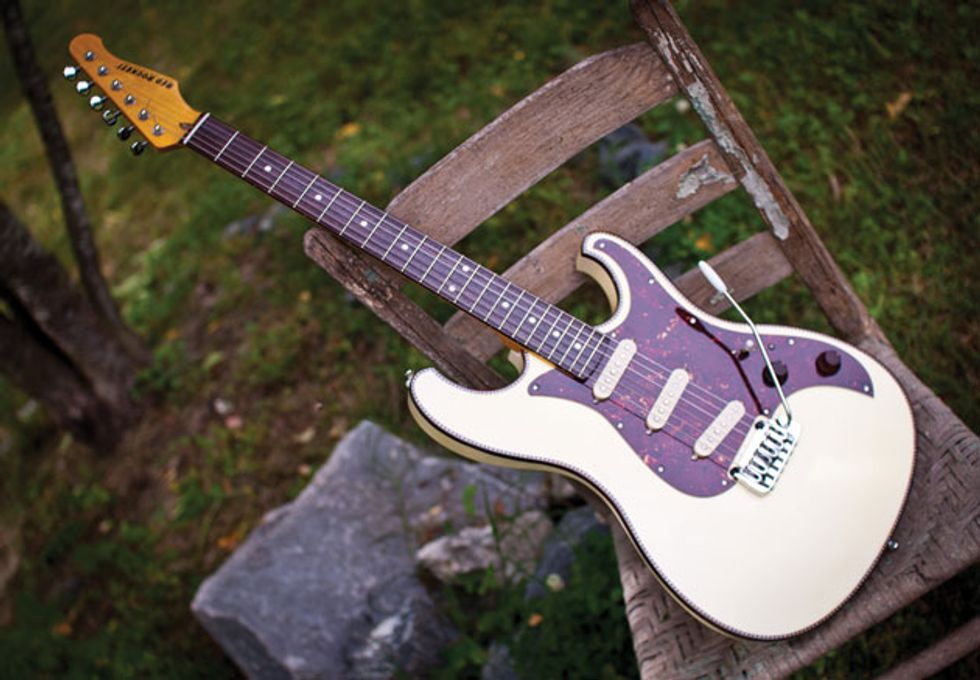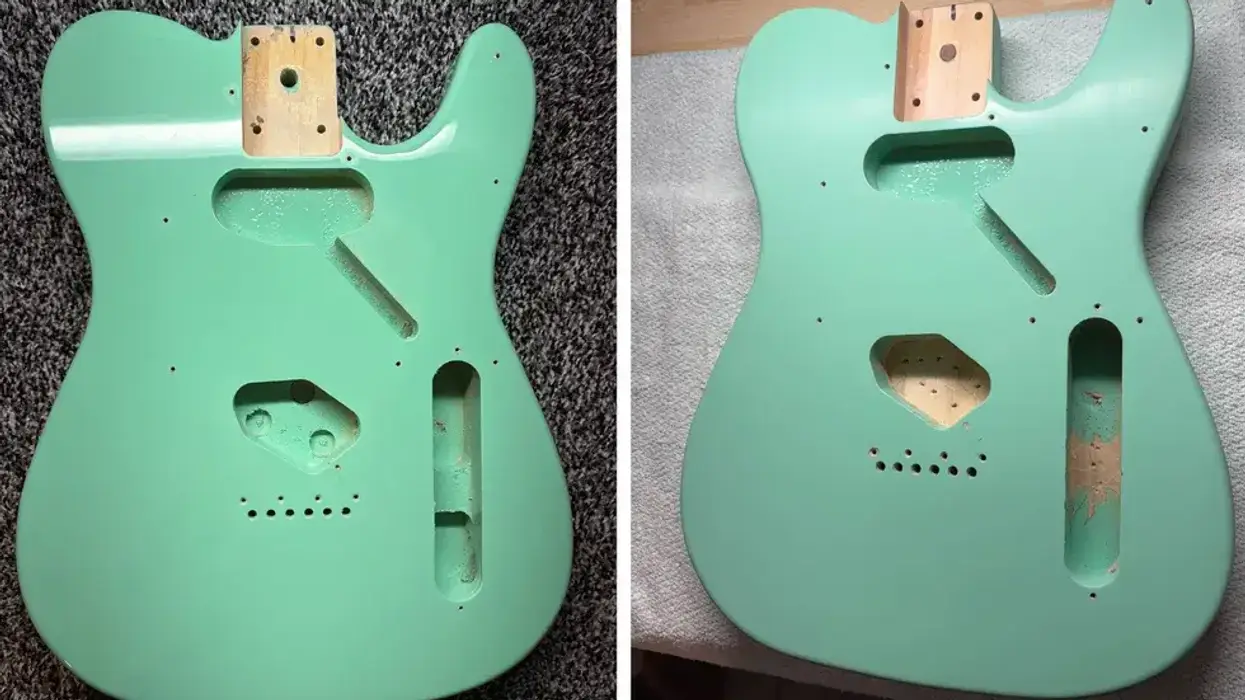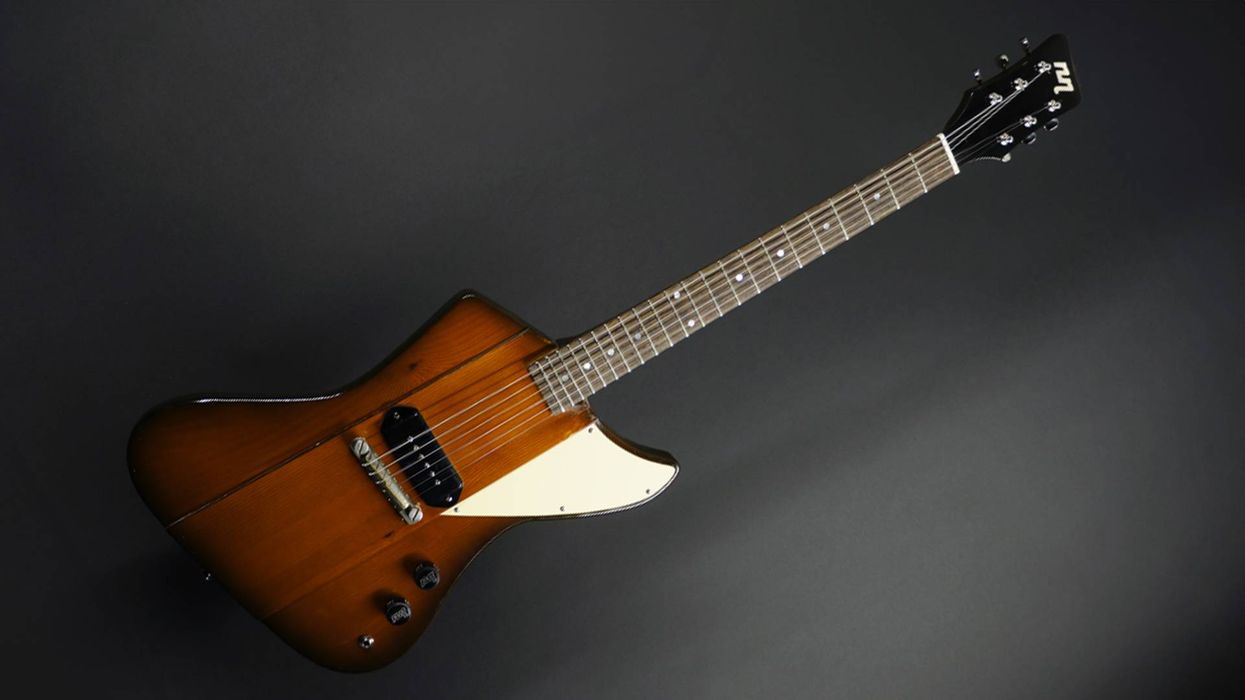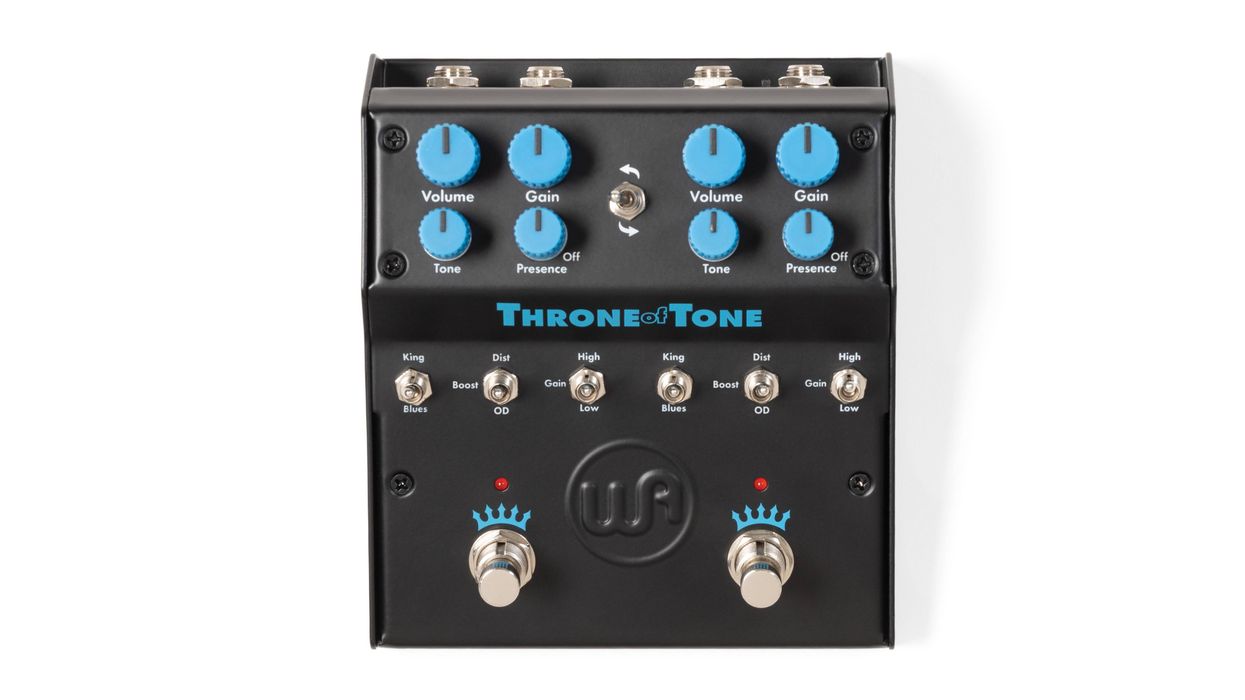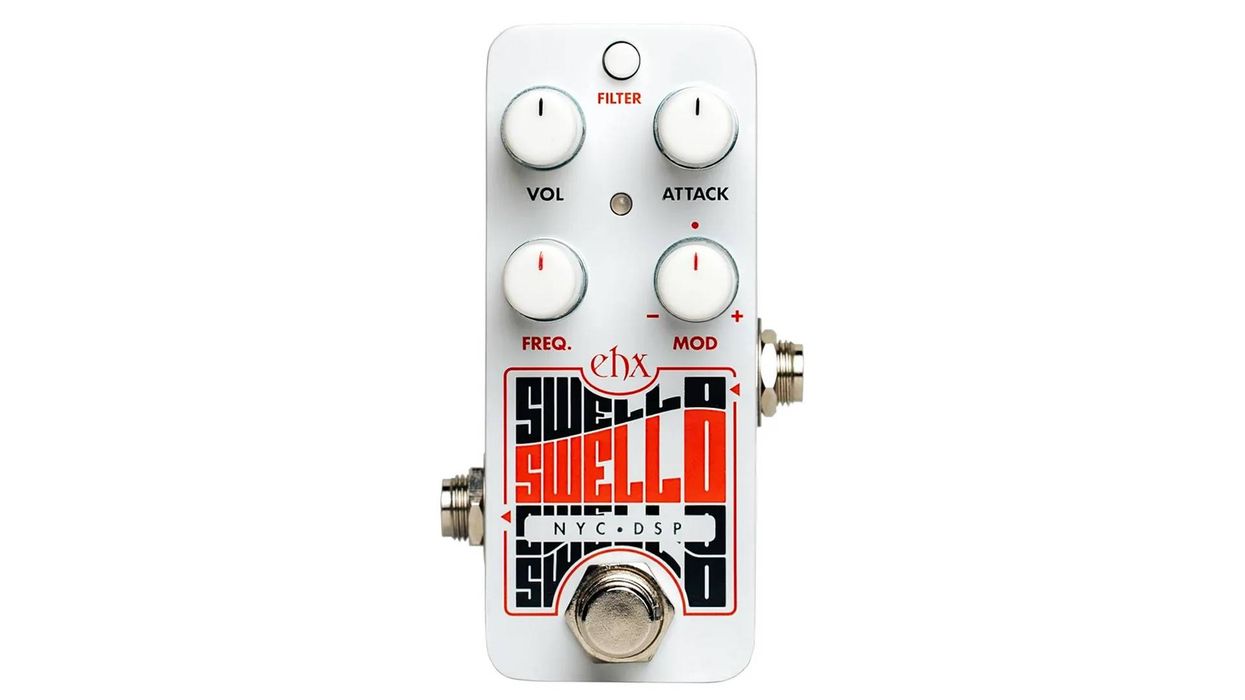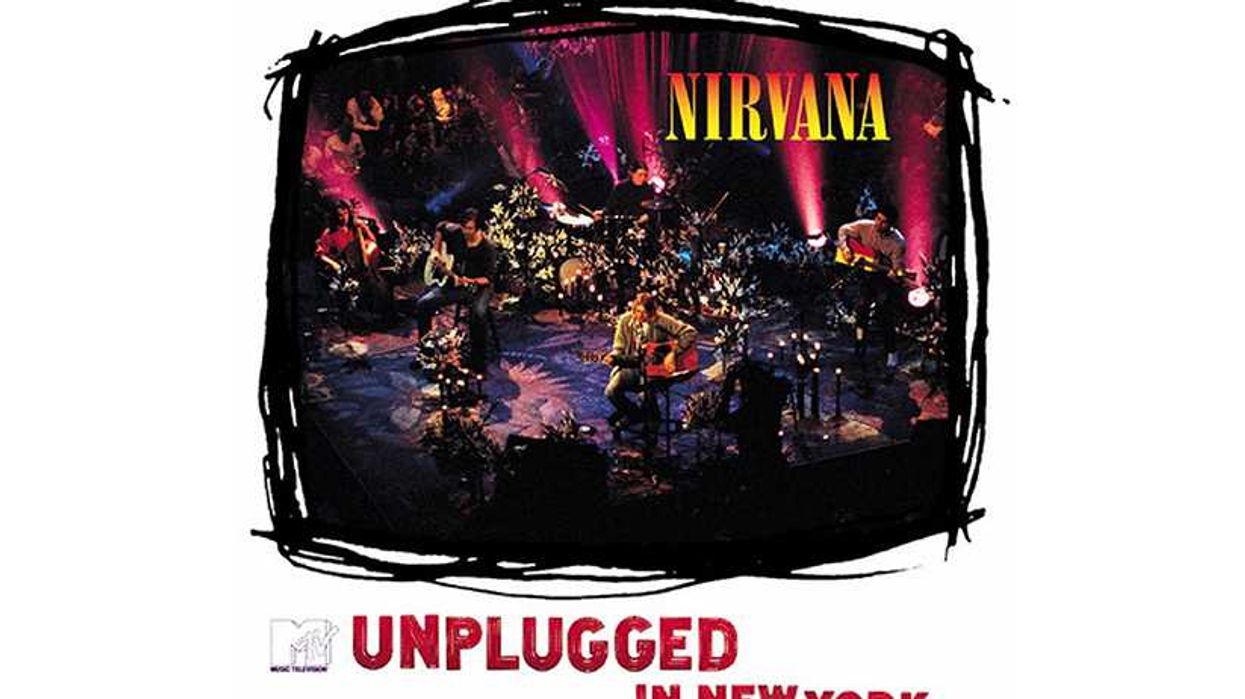Ash Top Custom Atomic
Shaped like a Tele but with much more than meets the eye, this mahogany-body Atomic is topped with intensely figured ash that's been finished with a vintage 'burst and then dressed with a thinline-style parchment pickguard. Going with flame maple for the neck, Nowicki outfitted it with a bocote fretboard that's adorned with white mother-of-pearl for the top and side dots. The pickup trio is made up of a TV Jones T-Armond in the neck, a Lindy Fralin reverse-wound Strat-style in the middle, and a Lindy Fralin overwound P-90 in the bridge.
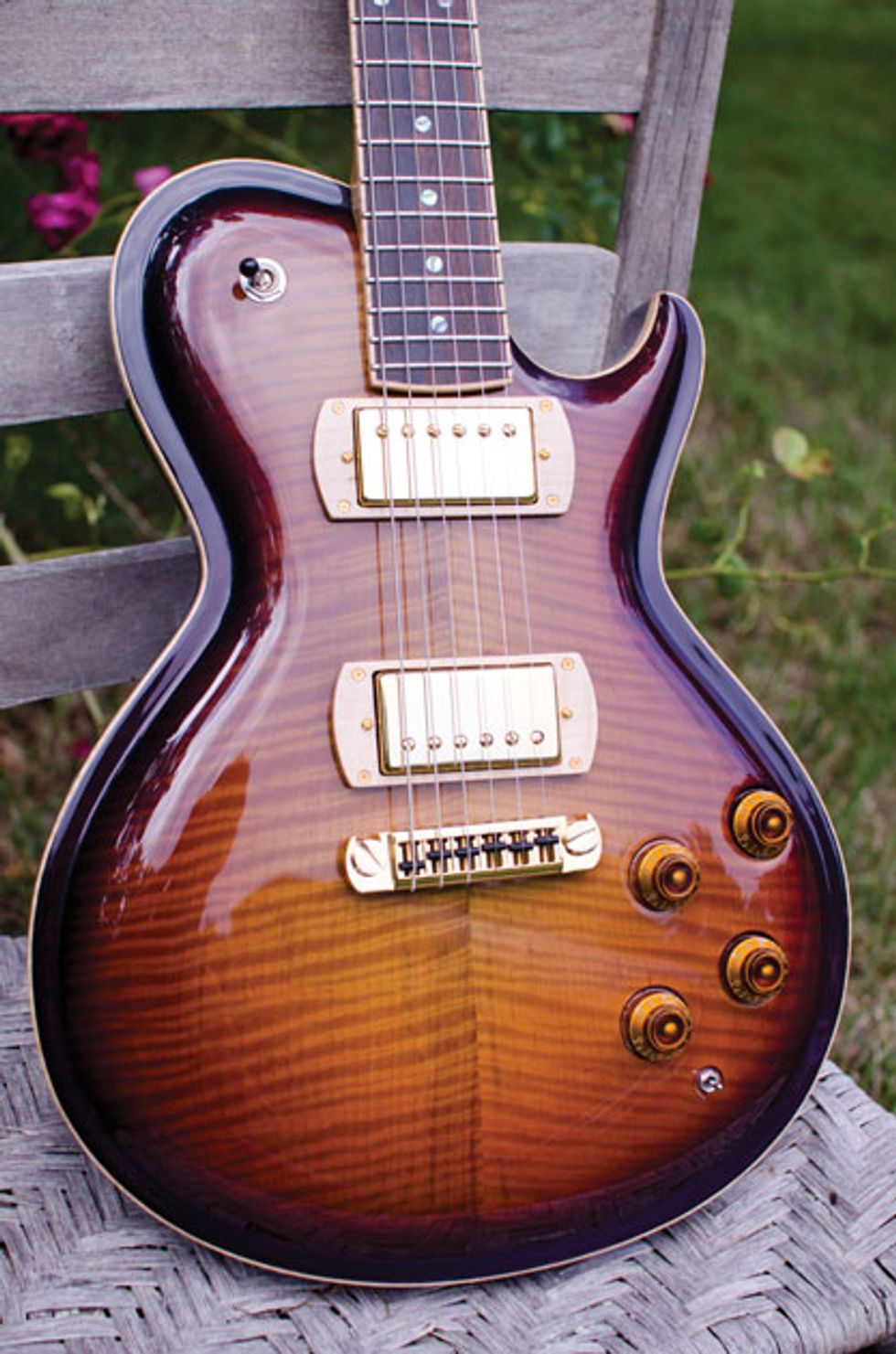
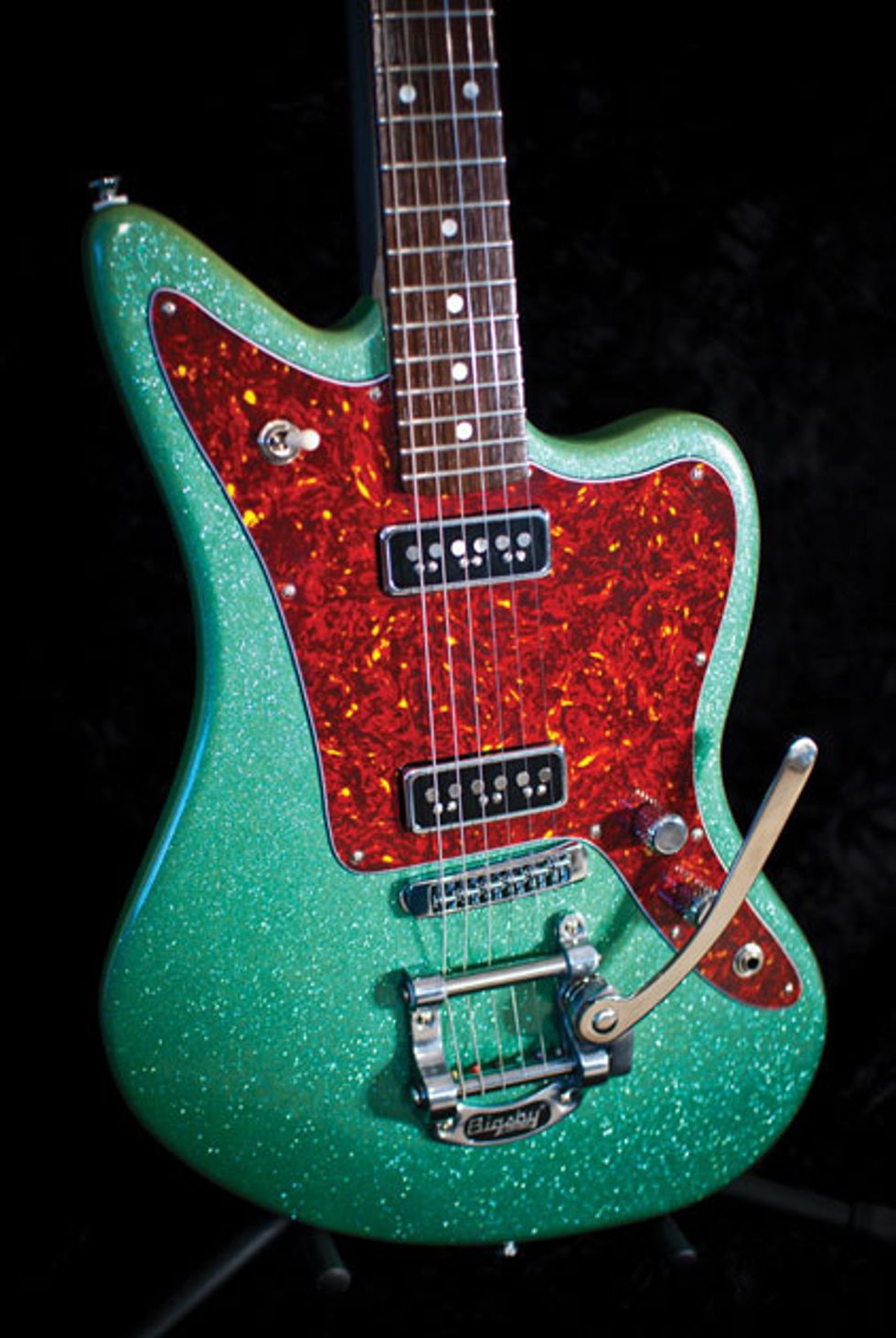
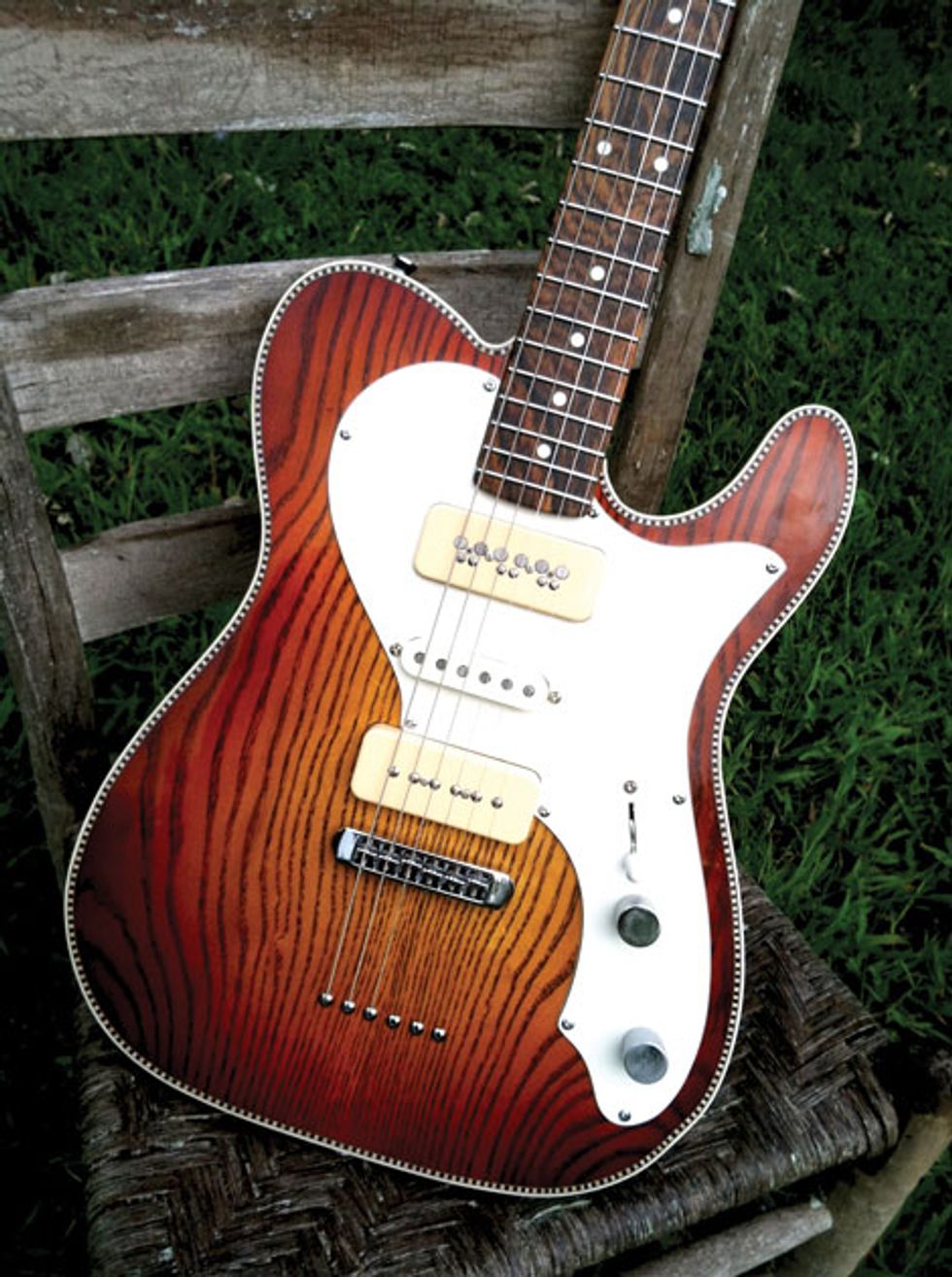
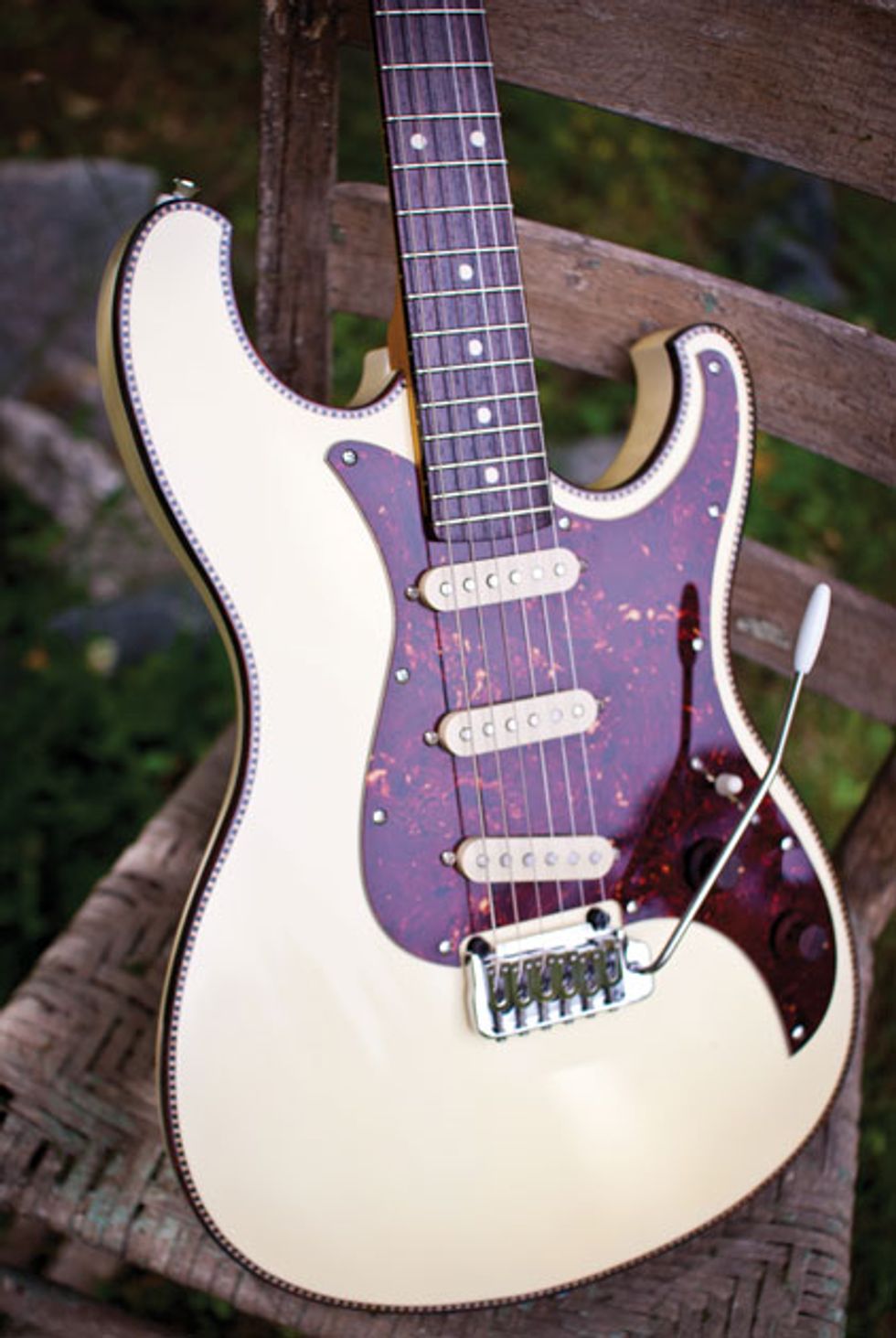
After a busy decade of concentrating on marriage, work, and kids, Matthew Nowicki came to the frightening realization that somehow he didn’t have a guitar in the house anymore. For someone who started playing at the age of 12, that just wasn’t a good sign. He decided to get back into it, but couldn't afford the pricey guitars he was digging at the time. So when he saw a banged-up vintage Tele with a snapped neck and no pickups for $100, he grabbed it. In just a few months, he taught himself the art of guitar repair while working it back into shape.
A friend of Nowicki’s loved the results of the Tele project so much that he offered to buy the guitar. Nowicki sold it to him and bought another broken instrument. After completing this cycle a few more times, Nowicki began designing and building his own guitars from scratch, starting with a batch of five. When he put up a website touting his wares, within a few months he had enough orders to build guitars full-time, which the North Carolina-based luthier has been doing for five years now. “It was kind of an accident that it turned into a career,” he says.
The self-taught luthier has been making art as long as he can remember and says it seemed natural to start building guitars. “I've always loved working with my hands and creating beautiful eye-catching objects,” says Nowicki, whose college major was sculpture. “When I was repairing broken guitars, I kept having ideas for interesting finishes, details, and shapes. There is a huge amount of information out there to learn how to build guitars, but like most things, the majority of the learning happens by just keeping on building with the attitude of trying to make the next one even better.”
In this quest, Nowicki notes the importance of sourcing quality components. “I like the standard woods like mahogany, maple, and rosewood, but I really believe that every guitar has a unique voice,” he says. “Two guitars made from the same materials will still have slightly different tones because every piece of wood is different.” The luthier likes using wood in interesting combinations to create unique voices and looks, but says the quality of the wood is always the most important thing. “Beautiful wood is wonderful, but it has to sound good, too.”
When it comes to electronics, Nowicki has tried most pickups on the market. “Smaller boutique builders really do create a superior product,” he says. “Lindy Fralin, Jason Lollar, Pete Biltoft and TV Jones make some of the best pickups I've used.”
Most of Nowicki’s customers have very specific ideas, so almost all of his builds are custom. It can be time consuming since unique jigs and tooling are needed for almost every instrument—but, of course, it’s worth it. “Working with clients to figure out their dream guitar is loads of fun and always results in something interesting,” says Nowicki. “I love thinking up new combinations of colors, wood, and sound, and seeing the instrument emerge at the end into something that has a life of its own.”
Red Rocket Guitars' StyleSonic, which features a body carved from solid, black limba, adorned with cocobolo binding and checker purfling.
Pricing and Availability
Nowicki can be contacted directly through his website, which also provides information for the dealers he works with. Nowicki makes approximately 30-40 guitars a year, but he plans to expand and recently took on a part-time assistant in the shop. The current build time for a Red Rocket guitar is approximately five months. Builds average about $2,950 and Nowicki contends that his guitars are rarely more than $4,500.
For more info:
Red Rocket Guitars

